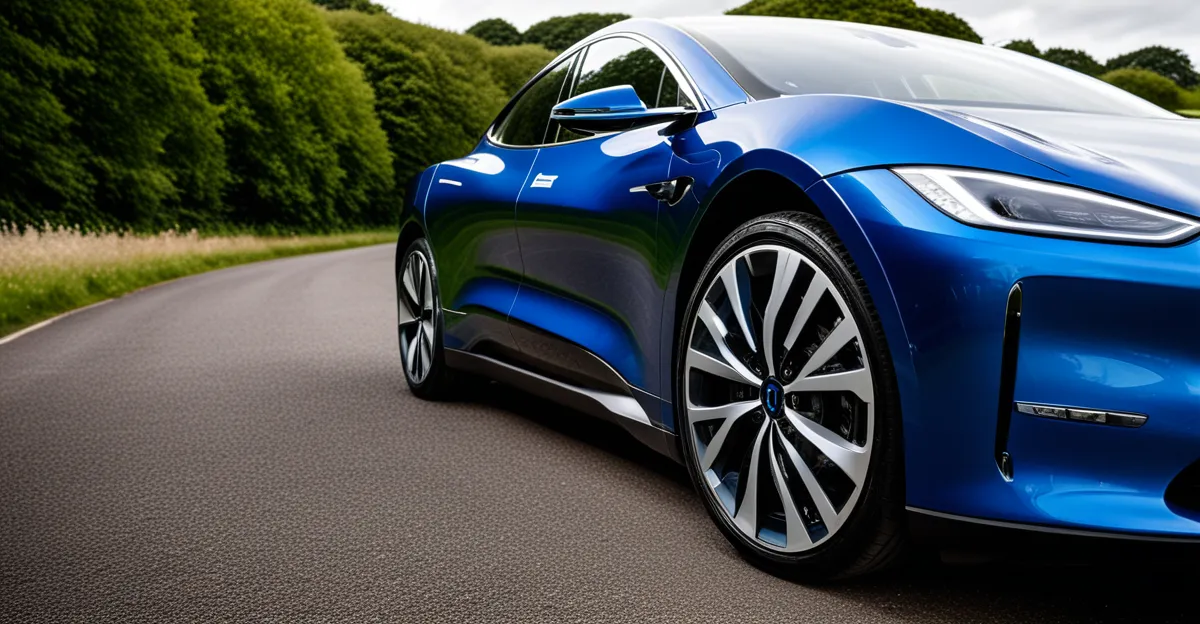Transformative Impact of Electric Vehicles in the UK Automotive Industry
The rise of electric vehicles (EVs) in the UK has rapidly transformed the automotive sector. Over the past decade, the UK market has witnessed a significant shift from traditional internal combustion engines to electric-powered models. This change is driven by several key factors including increased environmental awareness, technological advancements in battery efficiency, and supportive government policies encouraging EV adoption.
The automotive industry transformation includes substantial retooling of manufacturing plants to accommodate EV production, influencing supply chains and prompting new partnerships focused on electric drivetrains and battery technology. Early changes in the sector are already apparent; for example, established carmakers are investing heavily in electric platforms, while startups leverage innovation to capture niche EV markets.
Have you seen this : How Might Electric Vehicle Advancements Influence Urban Transport Systems?
The effects of EV adoption extend beyond manufacturing. Consumer behavior is evolving as more drivers opt for electric due to lower running costs and incentives. Additionally, traditional dealership and servicing models are adapting to new vehicle maintenance requirements. Together, these shifts underline a profound and ongoing transformation of the UK automotive industry, positioning it at the forefront of sustainable mobility.
Government Policies and Incentives Shaping EV Adoption
Government initiatives are pivotal in accelerating electric vehicle uptake.
In the same genre : What are the implications of new UK automotive safety regulations?
The UK EV legislation plays a crucial role in driving increased EV adoption through comprehensive government incentives. Policies such as purchase grants lower the upfront cost of electric vehicles, making them more accessible to consumers. Additionally, tax breaks and exemptions on road and congestion charges serve as financial motivators, enhancing the appeal of EVs over traditional cars.
A key question often asked is: How do government incentives affect EV adoption rates? The answer is that incentives directly increase consumer demand by reducing total ownership costs. This creates a positive feedback loop encouraging manufacturers to expand electric vehicle offerings.
Moreover, upcoming bans on the sale of new internal combustion engine vehicles by 2030 underpin regulatory pressure for automotive industry transformation focused on electrification. This legislative horizon compels stakeholders to invest in EV technologies and infrastructure proactively.
Collectively, these policies and incentives shape market dynamics by accelerating EV uptake and reinforcing long-term sustainability targets for the UK automotive sector. The intertwined impact of legislation and financial support underscores the government’s strategic commitment to a low-emission future.
Economic Implications of the Shift to Electric Vehicles
The economic impact of EVs on the UK automotive economy is profound and multifaceted. As EV adoption effects accelerate, traditional revenue streams are transforming while new investment opportunities arise. EV production demands specialized components, triggering shifts in supply chain dynamics. For instance, sourcing batteries and electric drivetrains locally is becoming a priority to reduce dependency and enhance resilience.
Investment trends reflect this change. Major automotive firms and startups alike are channeling funds into research, manufacturing capacity, and innovation, highlighting the industry’s pivot toward electrification. This investment surge supports growth in high-tech sectors and creates novel employment opportunities.
Furthermore, the evolving market opens doors for new entrants leveraging innovative technologies and business models. This fosters competition and diversification within the UK automotive landscape, enhancing overall economic robustness.
In essence, the economic impact of EVs goes beyond direct manufacturing. It catalyzes infrastructure upgrades, skills development, and supply chain realignment — collectively contributing to a more sustainable and competitive automotive economy in the UK.
Effects on Automotive Manufacturing and Workforce
The shift to EV manufacturing is transforming traditional automotive plants across the UK. Factories are adapting assembly lines to accommodate electric drivetrains and battery modules, requiring significant skills transition among the workforce. This transformation impacts automotive jobs UK by creating demand for advanced technical skills in battery technology, software, and electric powertrain assembly.
Job displacement in conventional engine production is a real concern; however, reskilling initiatives and investments in workforce training are mitigating these effects. Programs focused on upskilling employees help ease the transition, equipping workers for roles in EV design, testing, and maintenance. The evolving manufacturing landscape compels companies to invest heavily in research and development, fostering innovation and securing next-generation skills crucial for future industry competitiveness.
These changes highlight a broader automotive industry transformation, where traditional mechanical expertise is supplemented with digital and electrical engineering capabilities. Early adoption of such strategies positions the UK to remain a global leader in EV production while addressing potential labor market disruptions responsibly and sustainably.




